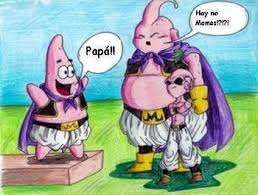WebQuest Lengua Extranjera Inglés Food And Restaurants
Food And Restaurants
Publicado el 20 Junio de 2010
Autor: Sanjuana Hernandez Reyes
Introducción
En el idioma Inglés, un verbo modal es un verbo auxiliar que se puede utilizar para cambiar el estado de ánimo de una oración gramatical. El camino clave para identificar un verbo modal es, por su carácter defectuoso (no tienen ni participios ni infinitivos).
Los verbos modales en Inglés son los siguientes, a la par como formas presente y pretérito indefinido:
shall and should
will and would
may and might
can and could
mote (Archaic) and must
Los siguientes no son verbos modales, pero puede ser usado para un propósito similar:
ought to and had better
used to
dare and need
do
going to
have to
Ficha técnica
Área:Lengua Extranjera
Asignatura:Inglés
Edad: No hay restriccion de edad
Herramientas:
Audio
Blogs
Encuestas
Escritura colaborativa
Fotografía
Hojas de cálculo
Notice: Undefined offset: 99 in /home/edutek/eduteka.net/proyectos/gp/webquest/ver.php on line 144
Tarea
So do I = yo tambien
Neither do I = yo tampoco
me too= yo tambien.
I Do = yo si
I Don´t = yo no
ejemplo:
I´going to play football. (voy a jugar al futbol)
Oh yes? So do I / me too. (¿si? yo tambien)
debes de entrar a esta paguina, y pasar los ejercicios a word para que los puesdas realizar, ya que los terminaste deberas de enviarlos ami correo para ver si estan bien realizados
http://www.eslbee.com/cobaq/quizzes/13_so_too_neither.htm
Complete these sentences according to the word in parenthesis:
1) I ___________________________(habría podido) to do it too.
2) you _____________________(pudiste haber ganado) the lottery with that ticket!.
3) they ___________________ (deberían haber visto) the doctor last month.
4) we _____________________(pudimos haber hablado) to them, but I don´t remember.
5) you already ___________________(debes haber creído) on god, after having found him inside you.
The use of "too, so, either, and neither"
(de ius ov "tu.., Sou, ider, and nider")
(el uso de "too, so, either, y neither")
Use what you have learned in this subject with these sentences, use the person you prefer to build those new 2 sentences.
Ex:
She is hungry. ___I am too._____ __so am i___
1) I can do it. _________________ ___________________
2) he likes to drink. __________________ ______________________
3) he went to the cinema. __________________ _____________________
4) she will go there. ___________________ ____________________
5) I have been studying. ___________________ _____________________
6) you should come with us. __________________ ______________________
7) we could see it. ___________________ ______________________
8) he isnot happy. _________________ ___________________
9) I donot like rats. _________________ ____________________
10) we won´t go there. _________________ ____________________
11) I can´t help him. _________________ ____________________
12) she hasn´t bought it. _________________ ___________________
Traduce estas oraciones
· A: "I'm afraid of spiders." -
B: "So am I." or "Me too."
· A: "I must hurry, it's late already"
B: "Oh, Gosh! So must I."
· A: "You look good." -
B: "So do you." or "You too." -
· A: "Mark lives in the suburbs."
B: "So does Jane." - Jane también.
· A: "We forgot to bring our umbrellas.".
B: "So did we." - Nosotros también.
· A: "My child was sick yesterday."
B: "So was mine." -
Procesos
solo deberas realizar la tarea que se te indico pra que despues la mandes a est e correo her.reyes20@hotmail.com y se te califique de acuerdo a tus respuestas correctas
Recursos
http://www.shertonenglish.com/resources/es/miscelaneous-topics/agreement.php
Evaluación
.tendras que mardar tus trabajos, para que ahi se te califique deacuerdo con las repuestas corresctas que tengas, ya que cada una es de un punto, por tarea completa es un diez, pero de ahi se te restarar por cada una que tengas mal...
Notas
.
*Nota: toda la información que aparece en los Proyectos de Clase y WebQuest del portal educativo Eduteka es creada por los usuarios del portal.




